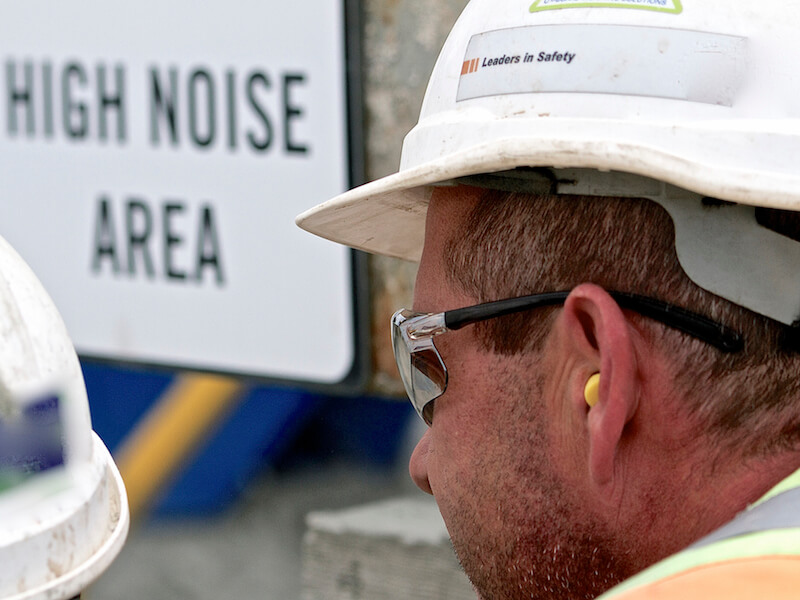
Your hearing can be harmed by a loud workplace and it can also impact your concentration. Your hearing health can be negatively affected by even modest levels of noise if you’re exposed to it for numerous hours each day. For this reason questions like “what hearing protection should I use?” are worth asking.
Many of us probably didn’t even realize there were multiple levels of hearing protection. But it seems logical when you stop to consider it. A truck driver won’t need the same amount of protection that a jet engine mechanic will.
Hearing Damage Levels
The standard rule of thumb is that 85 decibels (dB) of sound can start harming your ears. We aren’t really used to considering sound in decibels (even though that’s how we measure sound – it’s just not a figure we’re used to putting into context).
Eighty-five decibels is approximately how loud city traffic is when you’re sitting inside your car. No biggie, right? Actually, it’s rather significant. It becomes a big deal after numerous hours. Because it’s not just the loudness of the noise that you need to be aware of, it’s the duration of exposure.
Typical Danger Zones
If you’re exposed to 85 dB of noise for eight hours every day or more, you should probably consider using hearing protection. But that isn’t the only threshold you should be aware of. If you’re exposed to:
- 90 dB (e.g., lawnmower): Damage will start to happen to your ears if you’re exposed to this level of noise for 4 hours a day.
- 100 dB (e.g., power tools): Anything above one hour will be damaging to your hearing.
- 110 dB (e.g., leaf blower): Damage to your hearing takes place after 15 minutes of exposure to this noise level.
- 120 dB (e.g., rock concert): If your exposed to this level of noise for any amount of time, your hearing can be damaged.
- 140 dB (e.g., jet engine): Any exposure can cause damage and might even cause instant pain.
When you are going to be exposed to these levels of noise, utilize hearing protection that will bring the volume in your ears down below 85 dB.
Make Sure Your Hearing Protection Fits Comfortably
NRR, which is an acronym for Noise Reduction Rate, is a scale used to measure the effectiveness of hearing protection. The higher the NRR, the quieter your world will become (temporarily).
It’s incredibly important that you select hearing protection with a high enough NRR to keep you safe (and your workplace will usually make guidelines about what level might be appropriate).
Comfort is also an essential component to take into consideration. As it happens, comfort is extremely important to keeping your ears healthy. Why? Because if your hearing protection is uncomfortable, you won’t wear it.
Hearing Protection Choices
You’ve got three basic options to choose from:
- Earmuffs.
- In-ear earplugs
- Earplugs that sit just outside of the ear canal.
Each form of protection has advantages and disadvantages, but most of your hearing protection choices will depend upon personal preference. For some individuals, earplugs are uncomfortable, so earmuffs may be a better choice. Other individuals may appreciate the leave-them-in-and-forget-them approach of earplugs (obviously, you won’t want to forget them for too long… you should take them out at the end of your workday. And clean them).
Find a Consistent Degree of Hearing Protection
Any laps in your hearing protection can lead to damage, so comfort is an important factor. If you take your earmuffs off for ten minutes because they’re heavy and uncomfortable, your hearing can suffer over the long run. So the most crucial decision you can make is to select hearing protection that you’re comfortable leaving in place during your workday.
You’re ears will stay healthier and happier if you choose the right degree of hearing protection for your circumstance.
Call Today to Set Up an Appointment
References
https://www.cdc.gov/nceh/hearing_loss/what_noises_cause_hearing_loss.html
